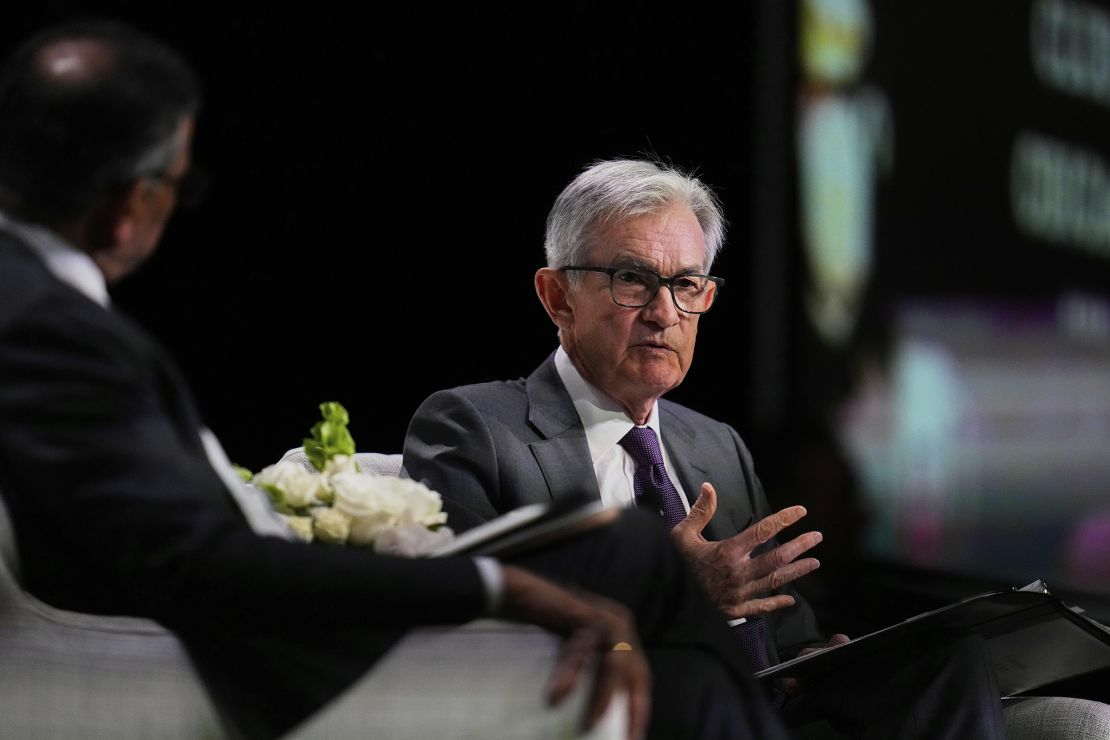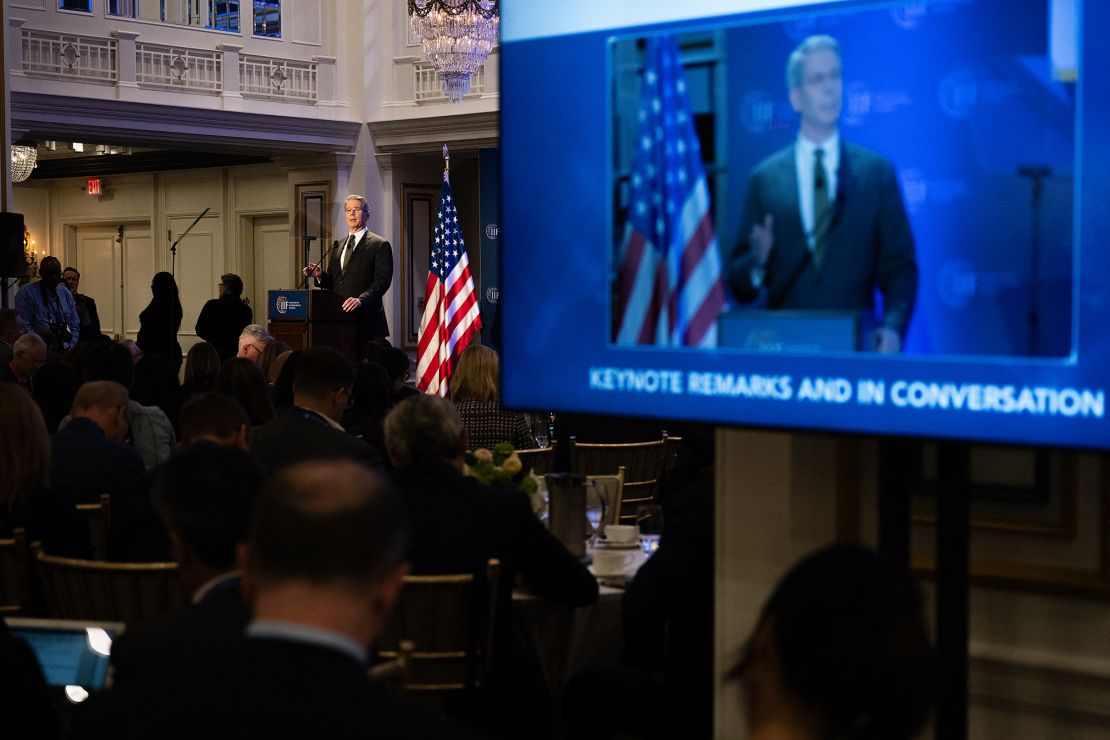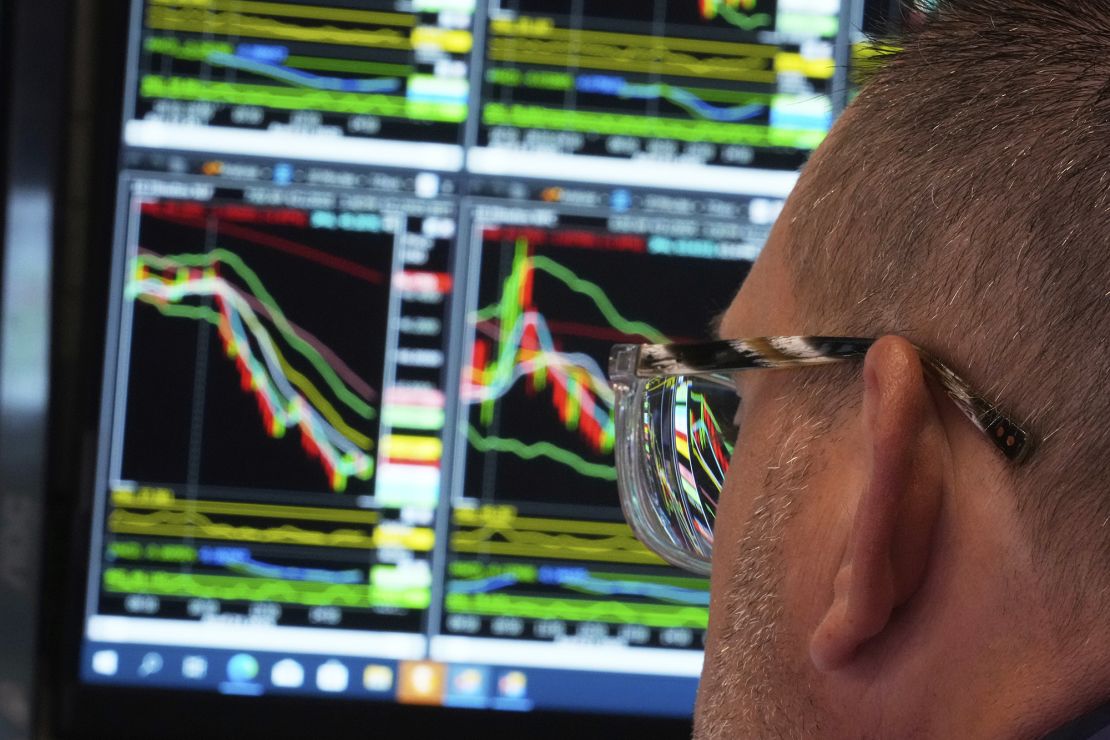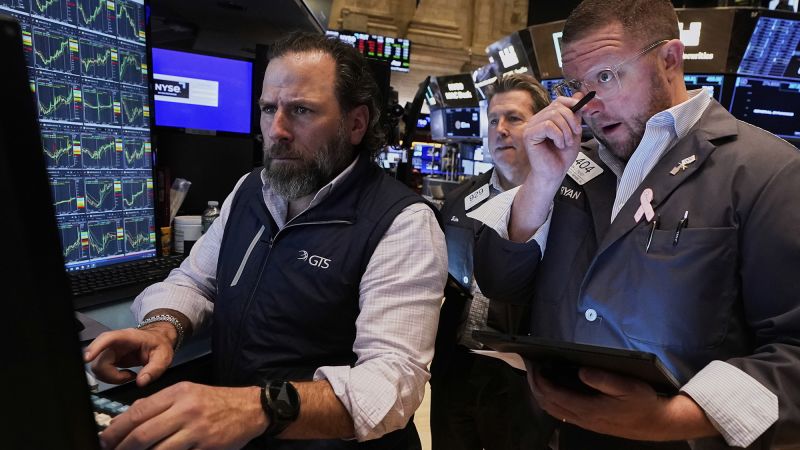New York
CNN
—
It’s been a wild few days for the US economy.
President Donald Trump’s jabs at Federal Reserve Chair Jerome Powell are affecting markets. Investors are ringing alarm bells with the assets they’re buying and mostly selling – and suddenly making comparisons to the Great Depression. And everyone from the International Monetary Fund to Trump’s billionaire friends are issuing stark warnings about his massive tariffs.
Here’s what you might have missed this week.
Presidential relationships can change, but Trump has taken that to an extreme.
After calling the Fed chair (whom he appointed in 2018) “a major loser” whose “termination cannot come soon enough last week, Trump seemed to soften up on Tuesday. He said he had “no intention” of firing Powell after advisers warned that terminating the central bank chief would backfire legally and economically, sources familiar with the matter told CNN.

But the president’s outlook soured by Wednesday.
“I haven’t called him. I might call him,” Trump said in an Oval Office executive action signing ceremony Wednesday evening. “I believe he’s making a mistake by not lowering interest rates, and I think, as well as we’re doing, we could do much better.”
On Wednesday, Trump said he could reimpose “reciprocal” tariffs on some countries in as soon as two or three weeks. The president had set a 90-day pause on his massive so-called reciprocal tariffs, which aren’t technically reciprocal, earlier this month to spur negotiations with other countries.
“In the end, I think what’s going to happen is, we’re going to have a great deals, and by the way, if we don’t have a deal with a company or a country, we’re going to set the tariff,” Trump said in an Oval Office ceremony. “I’d say over the next couple of weeks, wouldn’t you say? I think so. Over the next two, three weeks. We’ll be setting the number.”
If he reimposes the tariffs, it would be a significant re-escalation in the global trade war.
The stock market has been on a rollercoaster this week.
Investors started with a steep Monday sell-off after Trump’s attacks on Powell. The dollar tumbled to a three-year low, and nearly every company in the Dow and the S&P 500 closed lower.
Shares modestly rebounded Tuesday after Treasury Secretary Scott Bessent told investors that the US-China trade war is unsustainable and that he expects the battle to de-escalate, a person familiar with the matter confirmed to CNN.

Stocks soared on Wednesday, but Trump still has a long way to go to ease investors’ fears. Despite the two-day rally, the S&P 500 has shed $6.5 trillion in market value since its record high in February, according to Howard Silverblatt, senior index analyst at S&P Dow Jones Indices.
Meanwhile, US crude oil has tumbled as investors fear a recession could tank demand. And US Treasury yields, which trade in opposite direction to prices, have surged in recent weeks.
The IMF released a stark warning for the global economy and US prosperity in a Tuesday report.
“We are entering a new era as the global economic system that has operated for the last 80 years is being reset,” the IMF said, predicting rapidly slowing economic growth – particularly in the United States – and reignited US inflation.
South Korea’s Customs Service also reported that exports for the first 20 days of April declined by 5.2% compared to the same period last year – a sign for where global trade is heading under Trump’s tariff agenda.

Billionaires are becoming more and more vocal about the economic consequences of Trump’s tariffs.
Hedge fund Citadel CEO Ken Griffin, a supporter of the president, said Wednesday that tariffs are hurting America’s position in the world.
“The United States was more than just a nation. It’s a brand. It’s a universal brand, whether it’s our culture, our financial strength, our military strength,” Griffin said at the Semafor World Economy Summit in Washington. “And we’re eroding that brand right now.”
Griffin joins the list of wealthy business leaders diverging from the president. Last week, Ray Dalio, the founder of Bridgewater Associates, one of the world’s largest hedge funds, said Trump’s tariffs helped push America close to a recession — or perhaps even “something worse.”

